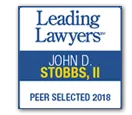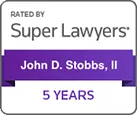(720 ILCS 5/12-2) (from Ch. 38, par. 12-2)
Sec. 12-2. Aggravated assault.
(a) Offense based on location of conduct. A person commits aggravated assault when he or she commits an assault against an individual who is on or about a public way, public property, a public place of accommodation or amusement, or a sports venue, or in a church, synagogue, mosque, or other building, structure, or place used for religious worship.
(b) Offense based on status of victim. A person commits aggravated assault when, in committing an assault, he or she knows the individual assaulted to be any of the following:
(1) A person with a physical disability or a person |
|
60 years of age or older and the assault is without legal justification. |
|
| (2) A teacher or school employee upon school grounds |
|
or grounds adjacent to a school or in any part of a building used for school purposes. |
|
| (3) A park district employee upon park grounds or |
|
grounds adjacent to a park or in any part of a building used for park purposes. |
|
| (4) A community policing volunteer, private security |
|
officer, or utility worker: |
|
(i) performing his or her official duties;
(ii) assaulted to prevent performance of his or |
|
|
| (iii) assaulted in retaliation for performing his |
|
|
| (4.1) A peace officer, fireman, emergency management |
|
worker, or emergency medical services personnel: |
|
(i) performing his or her official duties;
(ii) assaulted to prevent performance of his or |
|
|
| (iii) assaulted in retaliation for performing his |
|
|
(5) A correctional officer or probation officer:
(i) performing his or her official duties;
(ii) assaulted to prevent performance of his or |
|
|
| (iii) assaulted in retaliation for performing |
|
his or her official duties. |
|
| (6) A correctional institution employee, a county |
|
juvenile detention center employee who provides direct and continuous supervision of residents of a juvenile detention center, including a county juvenile detention center employee who supervises recreational activity for residents of a juvenile detention center, or a Department of Human Services employee, Department of Human Services officer, or employee of a subcontractor of the Department of Human Services supervising or controlling sexually dangerous persons or sexually violent persons: |
|
(i) performing his or her official duties;
(ii) assaulted to prevent performance of his or |
|
|
| (iii) assaulted in retaliation for performing his |
|
|
| (7) An employee of the State of Illinois, a municipal |
|
corporation therein, or a political subdivision thereof, performing his or her official duties. |
|
| (8) A transit employee performing his or her official |
|
duties, or a transit passenger. |
|
| (9) A sports official or coach actively participating |
|
in any level of athletic competition within a sports venue, on an indoor playing field or outdoor playing field, or within the immediate vicinity of such a facility or field. |
|
| (10) A person authorized to serve process under |
|
Section 2-202 of the Code of Civil Procedure or a special process server appointed by the circuit court, while that individual is in the performance of his or her duties as a process server. |
|
(c) Offense based on use of firearm, device, or motor vehicle. A person commits aggravated assault when, in committing an assault, he or she does any of the following:
(1) Uses a deadly weapon, an air rifle as defined in |
|
Section 24.8-0.1 of this Act, or any device manufactured and designed to be substantially similar in appearance to a firearm, other than by discharging a firearm. |
|
| (2) Discharges a firearm, other than from a motor |
|
|
(3) Discharges a firearm from a motor vehicle.
(4) Wears a hood, robe, or mask to conceal his or her |
|
|
| (5) Knowingly and without lawful justification shines |
|
or flashes a laser gun sight or other laser device attached to a firearm, or used in concert with a firearm, so that the laser beam strikes near or in the immediate vicinity of any person. |
|
| (6) Uses a firearm, other than by discharging the |
|
firearm, against a peace officer, community policing volunteer, fireman, private security officer, emergency management worker, emergency medical services personnel, employee of a police department, employee of a sheriff’s department, or traffic control municipal employee: |
|
(i) performing his or her official duties;
(ii) assaulted to prevent performance of his or |
|
|
| (iii) assaulted in retaliation for performing his |
|
|
| (7) Without justification operates a motor vehicle in |
|
a manner which places a person, other than a person listed in subdivision (b)(4), in reasonable apprehension of being struck by the moving motor vehicle. |
|
| (8) Without justification operates a motor vehicle in |
|
a manner which places a person listed in subdivision (b)(4), in reasonable apprehension of being struck by the moving motor vehicle. |
|
| (9) Knowingly video or audio records the offense |
|
with the intent to disseminate the recording. |
|
(d) Sentence. Aggravated assault as defined in subdivision (a), (b)(1), (b)(2), (b)(3), (b)(4), (b)(7), (b)(8), (b)(9), (c)(1), (c)(4), or (c)(9) is a Class A misdemeanor, except that aggravated assault as defined in subdivision (b)(4) and (b)(7) is a Class 4 felony if a Category I, Category II, or Category III weapon is used in the commission of the assault. Aggravated assault as defined in subdivision (b)(4.1), (b)(5), (b)(6), (b)(10), (c)(2), (c)(5), (c)(6), or (c)(7) is a Class 4 felony. Aggravated assault as defined in subdivision (c)(3) or (c)(8) is a Class 3 felony.
(e) For the purposes of this Section, “Category I weapon”, “Category II weapon”, and “Category III weapon” have the meanings ascribed to those terms in Section 33A-1 of this Code.
(Source: P.A. 101-223, eff. 1-1-20; 102-558, eff. 8-20-21.) |




